KYIV, Ukraine — Russia pressed its invasion of Ukraine to the outskirts of the capital Friday after unleashing airstrikes on cities and military bases and sending in troops and tanks from three sides in an attack that could rewrite the global post-Cold War security order.
Explosions sounded before dawn in Kyiv as Western leaders scheduled an emergency meeting and Ukraine’s president pleaded for international help. The nature of the explosions was not immediately clear, but the blasts came amid signs that the capital and largest Ukrainian city was increasingly threatened following a day of fighting that left more than 100 Ukrainians dead.
Ukrainian President Volodymyr Zelenskyy said the government had information that “subversive groups” were encroaching on the city, and U.S. Secretary of State Antony Blinken said Kyiv “could well be under siege” in what U.S. officials believe is a brazen attempt by Russian President Vladimir Putin to dismantle the government and replace it with his own regime.
U.S. Defense Secretary Lloyd Austin told lawmakers on a phone call Thursday evening that Russian mechanized forces that entered from Belarus were about 20 miles from Kyiv, according to a person familiar with the call.

People rest in the subway, using it as a bomb shelter, in Kyiv, Ukraine, on Thursday. Emilio Morenatti/Associated Press
The assault, anticipated for weeks by the U.S. and Western allies and undertaken by Putin in the face of international condemnation and cascading sanctions, amounts to the largest ground war in Europe since World War II.
Russian missiles bombarded cities and military bases in the first day of the attack, and Ukraine officials said they had lost control of the decommissioned Chernobyl nuclear power plant, scene of the world’s worst nuclear disaster. Civilians piled into trains and cars to flee.
As explosions sounded in Kyiv early Friday, guests of a hotel were directed to a makeshift basement shelter. Air raid sirens also went off.
“Russia has embarked on a path of evil, but Ukraine is defending itself and won’t give up its freedom,” Zelenskyy tweeted. His grasp on power increasingly tenuous, he called Thursday for even more severe sanctions than the ones imposed by Western allies and ordered a full military mobilization that would last 90 days.
Zelenskyy said in a video address that 137 “heroes,” including 10 military officers, had been killed and 316 people wounded. The dead included border guards on the Zmiinyi Island in the Odesa region, which was taken over by Russians.

A woman and child peer out of the window of a bus as they leave Sievierodonetsk, the Luhansk region, in eastern Ukraine on Thursday. Vadim Ghirda/Associated Press
He concluded an emotional speech by saying that “the fate of the country depends fully on our army, security forces, all of our defenders.” He also said the country had heard from Moscow that ”they want to talk about Ukraine’s neutral status.”
Biden was to meet Friday morning with fellow leaders of NATO governments in what the White House described as an “extraordinary virtual summit” to discuss Ukraine.
President Biden announced new sanctions against Russia, saying Putin “chose this war” and had exhibited a “sinister” view of the world in which nations take what they want by force. Other nations also announced sanctions, or said they would shortly.
“It was always about naked aggression, about Putin’s desire for empire by any means necessary — by bullying Russia’s neighbors through coercion and corruption, by changing borders by force, and, ultimately, by choosing a war without a cause,” Biden said.
Blinken said in television interviews that he was convinced that Russia was intent on overthrowing the Ukrainian government, telling CBS that Putin wants to “reconstitute the Soviet empire” and that Kyiv was already “under threat, and it could well be under siege.”
Fearing a Russian attack on the capital city, thousands of people went deep underground as night fell, jamming Kyiv’s subway stations.
At times it felt almost cheerful. Families ate dinner. Children played. Adults chatted. People brought sleeping bags or dogs or crossword puzzles — anything to alleviate the waiting and the long night ahead.

A local citizen stands in the debris of his house following Ukrainian shelling in the territory controlled by pro-Russian militants in eastern Ukraine on Thursday. Russian troops launched a three-pronged assault on Ukraine that opened with air and missile strikes on Ukrainian military facilities and included ground troops invading from Crimea. Alexei Alexandrov/Associated Press
But the exhaustion was clear on many faces. And the worries.
“Nobody believed that this war would start and that they would take Kyiv directly,” said Anton Mironov, waiting out the night in one of the old Soviet metro stations. “I feel mostly fatigue. None of it feels real.”
The invasion began early Thursday with a series of missile strikes, many on key government and military installations, quickly followed by a three-pronged ground assault. Ukrainian and U.S. officials said Russian forces were attacking from the east toward Kharkiv, Ukraine’s second-largest city; from the southern region of Crimea, which Russia annexed in 2014; and from Belarus to the north.
Zelenskyy, who had earlier cut diplomatic ties with Moscow and declared martial law, appealed to global leaders, saying that “if you don’t help us now, if you fail to offer a powerful assistance to Ukraine, tomorrow the war will knock on your door.”
Though Biden said he had no plans to speak with Putin, the Russian leader did have what the Kremlin described as a “serious and frank exchange” with French President Emmanuel Macron.
Both sides claimed to have destroyed some of the other’s aircraft and military hardware, though little of that could be confirmed.

Smoke and flames rise near a military building after an apparent Russian strike in Kyiv, Ukraine, on Thursday. Efrem Lukatsky/Associated Press
Hours after the invasion began, Russian forces seized control of the now-unused Chernobyl plant and its surrounding exclusion zone after a fierce battle, presidential adviser Myhailo Podolyak told The Associated Press.
The Vienna-based International Atomic Energy Agency said it was told by Ukraine of the takeover, adding that there had been “no casualties or destruction at the industrial site.”
The 1986 disaster occurred when a nuclear reactor at the plant 80 miles north of Kyiv exploded, sending a radioactive cloud across Europe. The damaged reactor was later covered by a protective shell to prevent leaks.
Alyona Shevtsova, adviser to the commander of Ukraine’s ground forces, wrote on Facebook that staff members at the Chernobyl plant had been “taken hostage.” The White House said it was “outraged” by reports of the detentions.
The Ukrainian Ministry of Defense issued an update saying that though the plant was “likely captured,” the country’s forces had halted Russia’s advance toward Chernihiv and that it was unlikely that Russia had achieved its planned Day One military objectives.
The chief of the NATO alliance, Jens Stoltenberg, said the “brutal act of war” shattered peace in Europe, joining a chorus of world leaders decrying an attack that could cause massive casualties and topple Ukraine’s democratically elected government. The conflict shook global financial markets: Stocks plunged and oil prices soared amid concerns that heating bills and food prices would skyrocket.
Condemnation came not only from the U.S. and Europe, but from South Korea, Australia and beyond — and many governments readied new sanctions. Even friendly leaders like Hungary’s Viktor Orban sought to distance themselves from Putin.

Police officers detain a demonstrator in St. Petersburg, Russia, on Thursday. Hundreds of people gathered in the centers of Moscow and St. Petersburg to protest against Russia’s attack on Ukraine. Dmitri Lovetsky/Associated Press
British Prime Minister Boris Johnson said he aimed to cut off Russia from the U.K.’s financial markets as he announced sanctions, freezing the assets of all large Russian banks and planning to bar Russian companies and the Kremlin from raising money on British markets.
“Now we see him for what he is — a bloodstained aggressor who believes in imperial conquest,” Johnson said of Putin.
The U.S. sanctions will target Russian banks, oligarchs, state-controlled companies and high-tech sectors, Biden said, but they were designed not to disrupt global energy markets. Russian oil and natural gas exports are vital energy sources for Europe.
Zelenskyy urged the U.S. and West to go further and cut the Russians from the SWIFT system, a key financial network that connects thousands of banks around the world. The White House has been reluctant to immediately cut Russia from SWIFT, worried it could cause enormous economic problems in Europe and elsewhere in the West.
While some nervous Europeans speculated about a possible new world war, the U.S. and its NATO partners have shown no indication they would send troops into Ukraine, fearing a larger conflict. NATO reinforced its members in Eastern Europe as a precaution, and Biden said the U.S. was deploying additional forces to Germany to bolster NATO.
European authorities declared the country’s airspace an active conflict zone.
After weeks of denying plans to invade, Putin launched the operation on a country the size of Texas that has increasingly tilted toward the democratic West and away from Moscow’s sway. The autocratic leader made clear earlier this week that he sees no reason for Ukraine to exist, raising fears of possible broader conflict in the vast space that the Soviet Union once ruled. Putin denied plans to occupy Ukraine, but his ultimate goals remain hazy.
Ukrainians were urged to shelter in place and not to panic.
“Until the very last moment, I didn’t believe it would happen. I just pushed away these thoughts,” said a terrified Anna Dovnya in Kyiv, watching soldiers and police remove shrapnel from an exploded shell. “We have lost all faith.”
With social media amplifying a torrent of military claims and counter-claims, it was difficult to determine exactly what was happening on the ground.
Russia and Ukraine made competing claims about damage they had inflicted. Russia’s Defense Ministry said it had destroyed scores of Ukrainian air bases, military facilities and drones. It confirmed the loss of one of its Su-25 attack jets, blaming “pilot error,” and said an An-26 transport plane had crashed because of technical failure, killing the entire crew. It did not say how many were aboard.
Russia said it was not targeting cities, but journalists saw destruction in many civilian areas.
Isachenkov and Litvinova reported from Moscow. Francesca Ebel in Kyiv; Angela Charlton in Paris; Geir Moulson and Frank Jordans in Berlin; Raf Casert and Lorne Cook in Brussels; Nic Dumitrache in Mariupol, Ukraine, Inna Varennytsia in eastern Ukraine; and Robert Burns, Matthew Lee, Aamer Madhani, Eric Tucker, Nomaan Merchant, Ellen Knickmeyer, Zeke Miller, Chris Megerian and Darlene Superville in Washington contributed.
Send questions/comments to the editors.

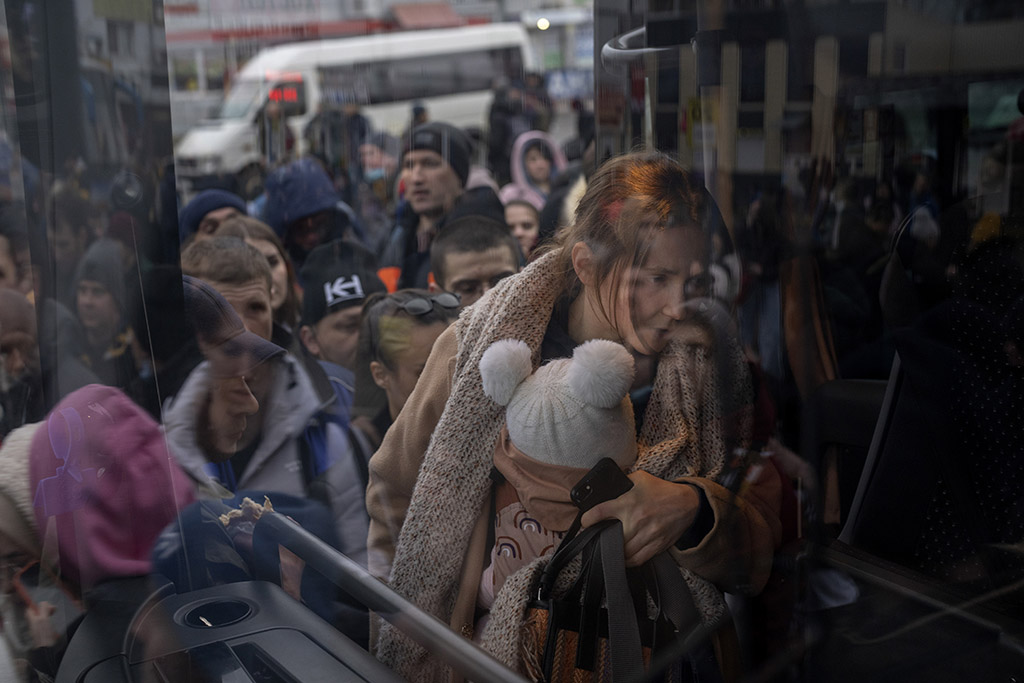
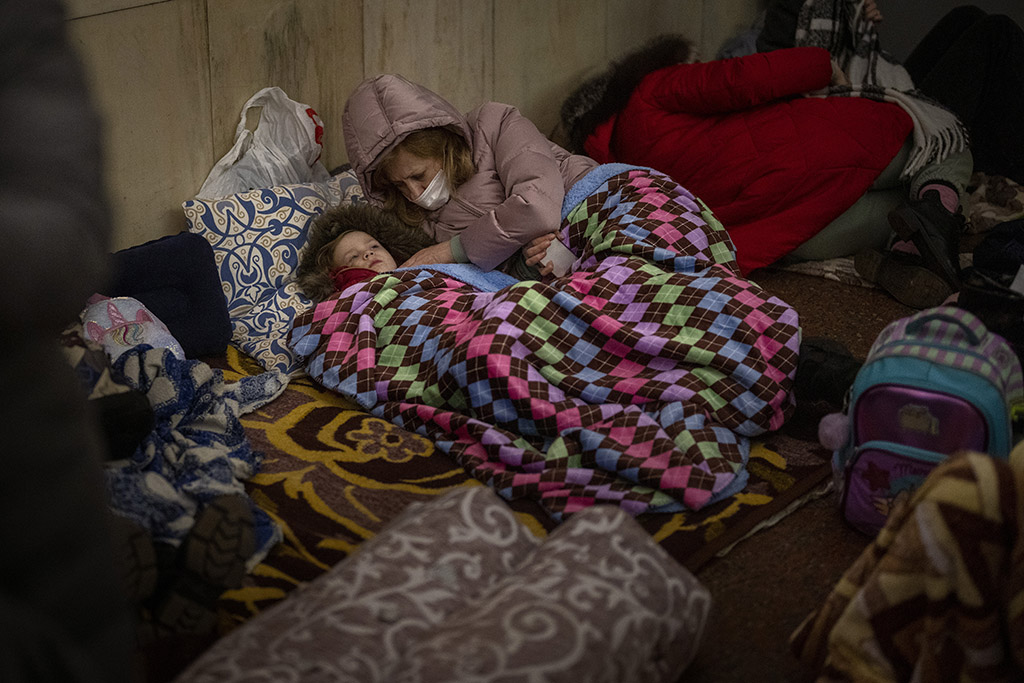
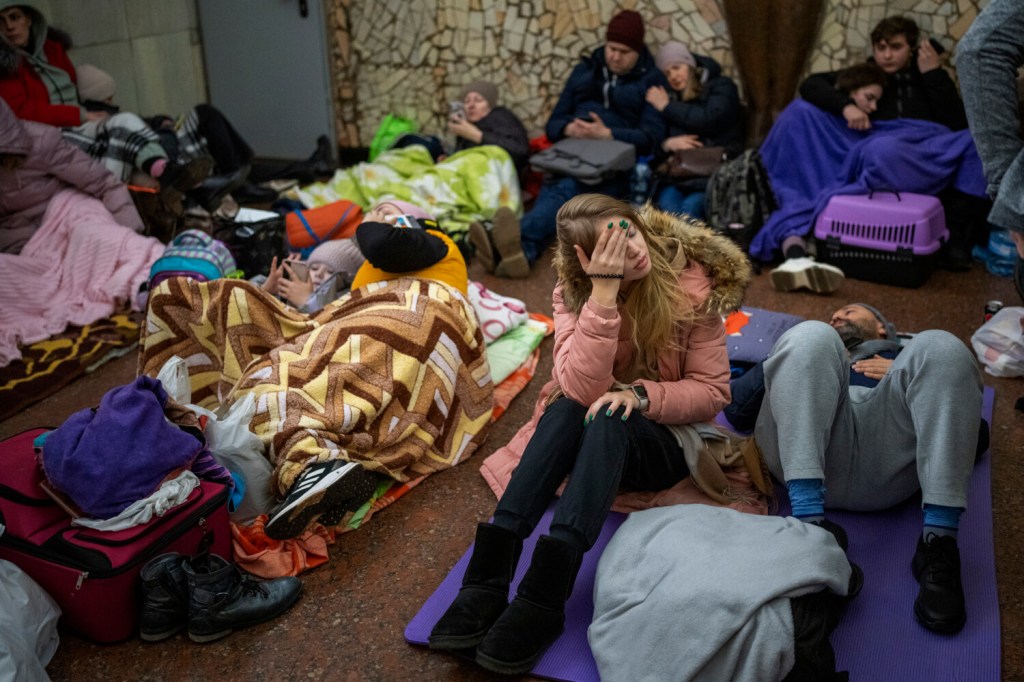
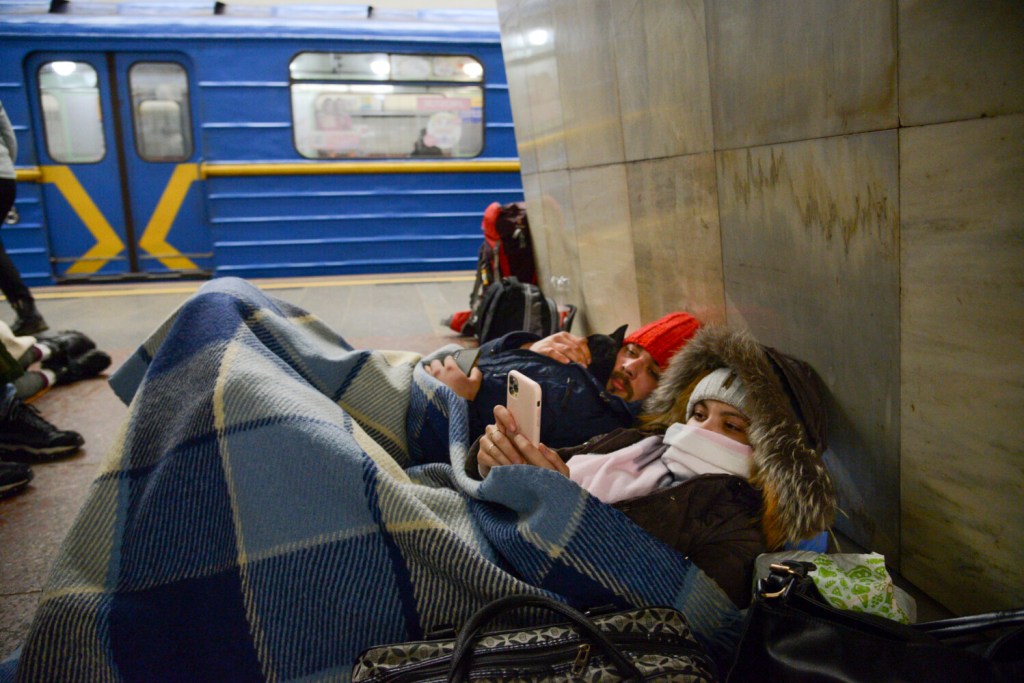
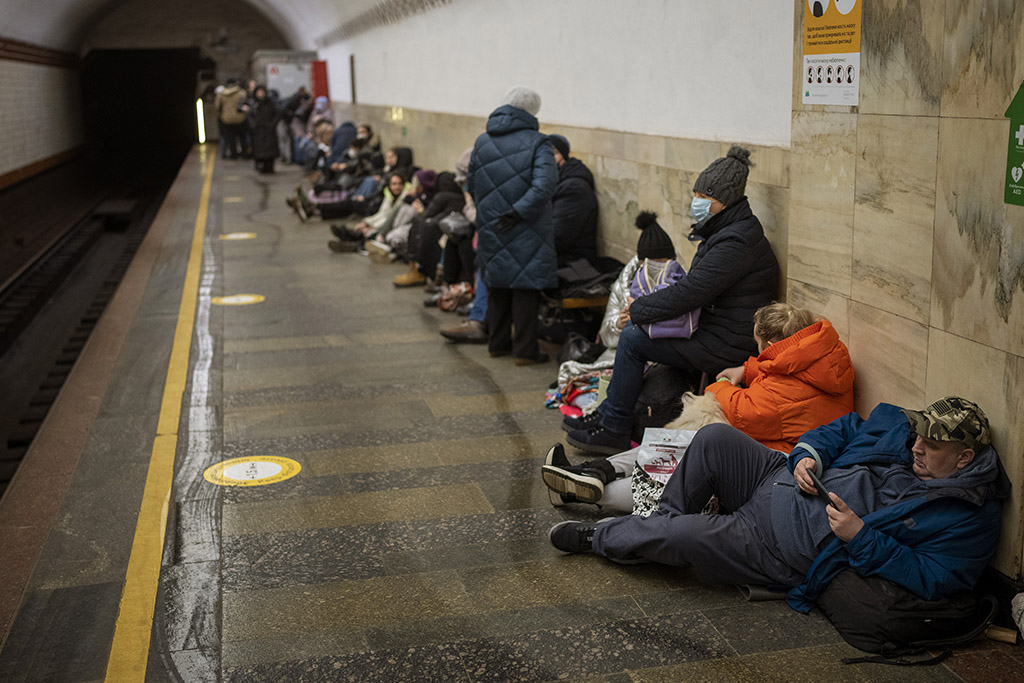
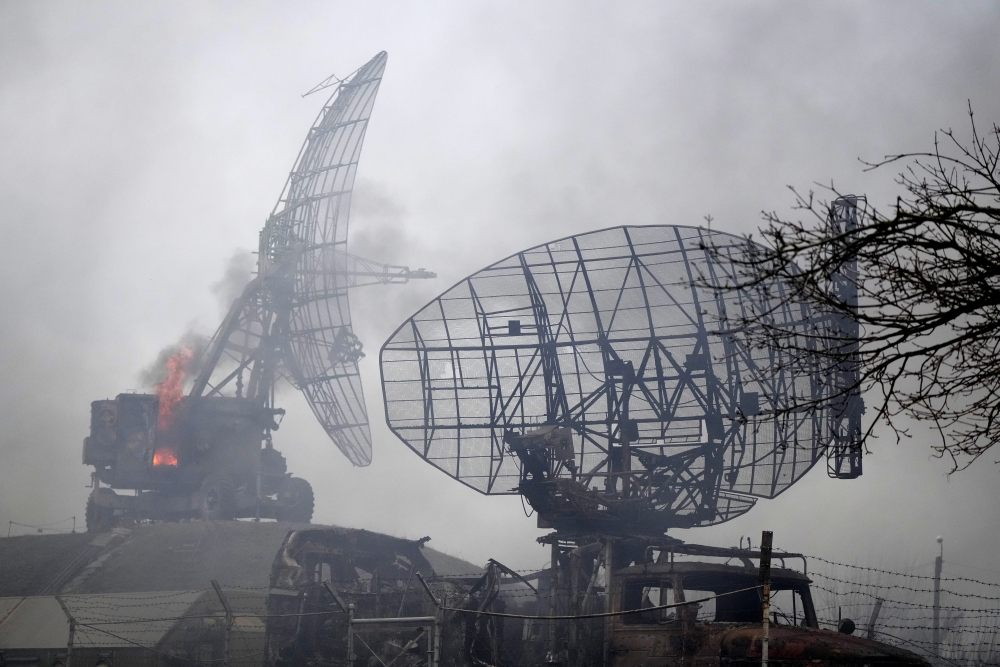
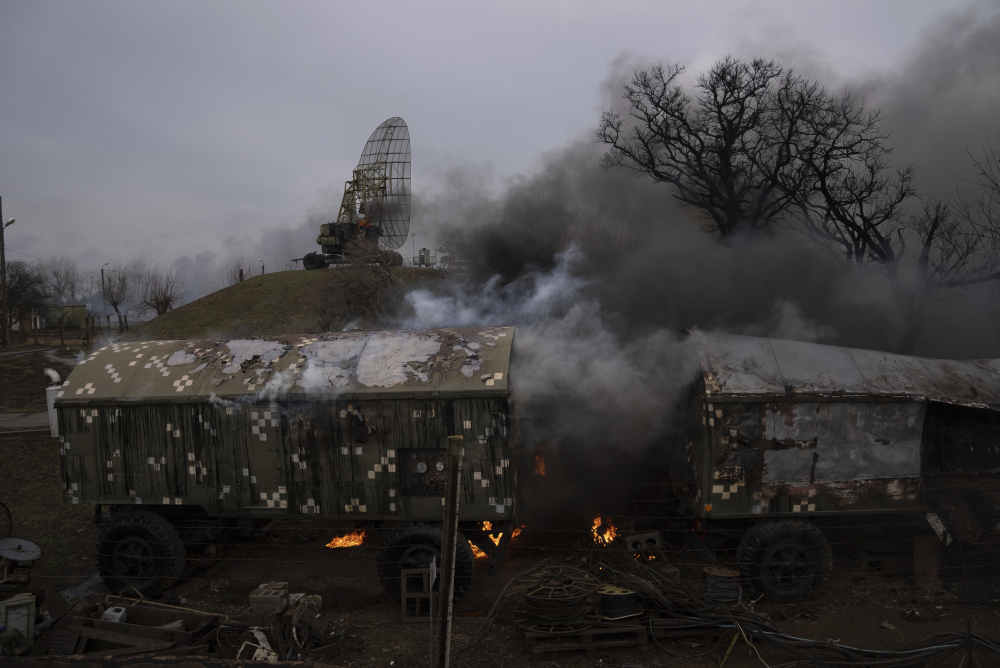
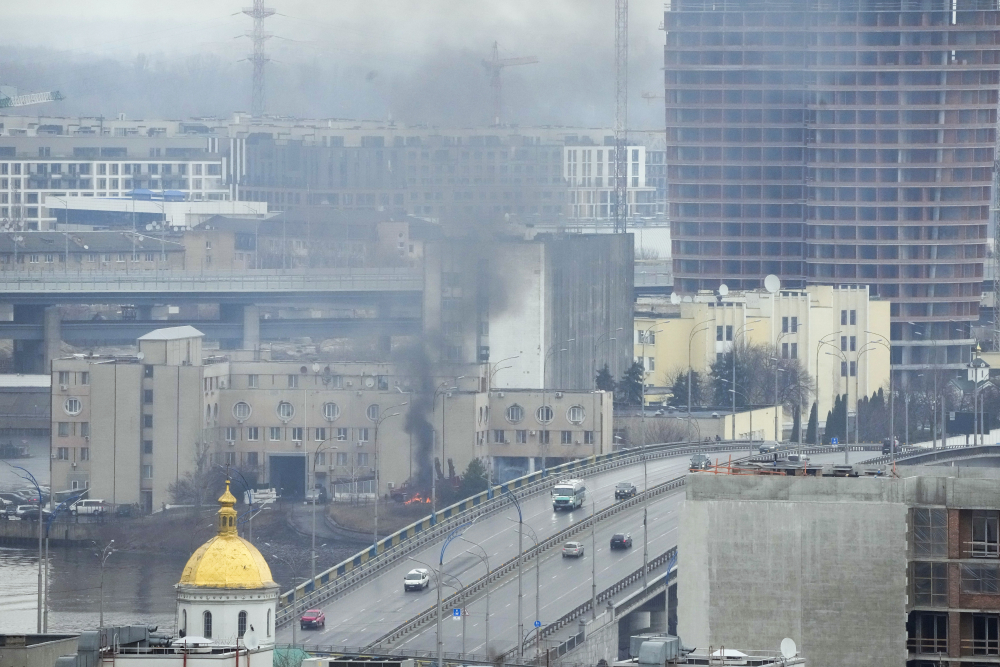
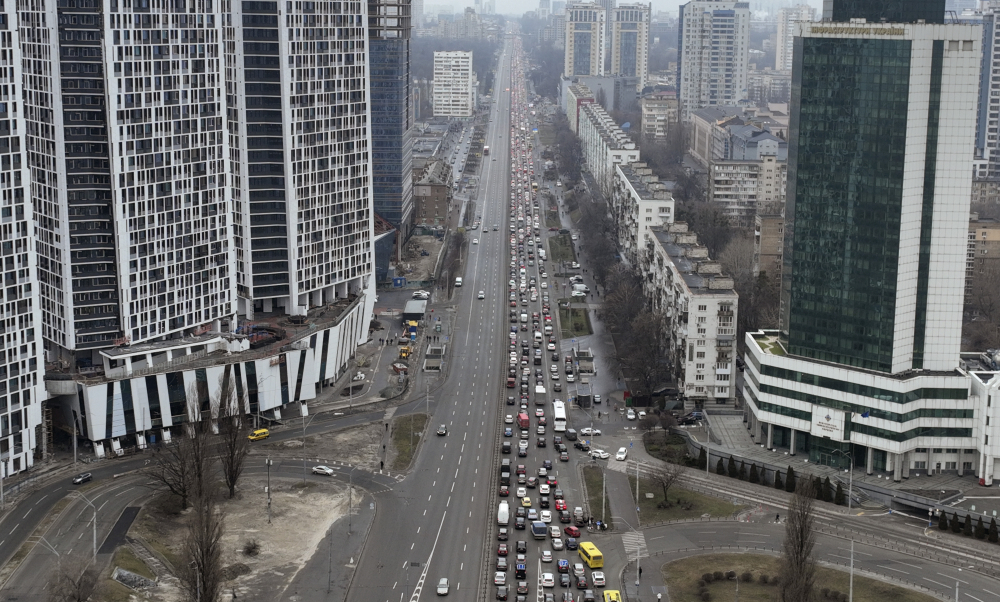
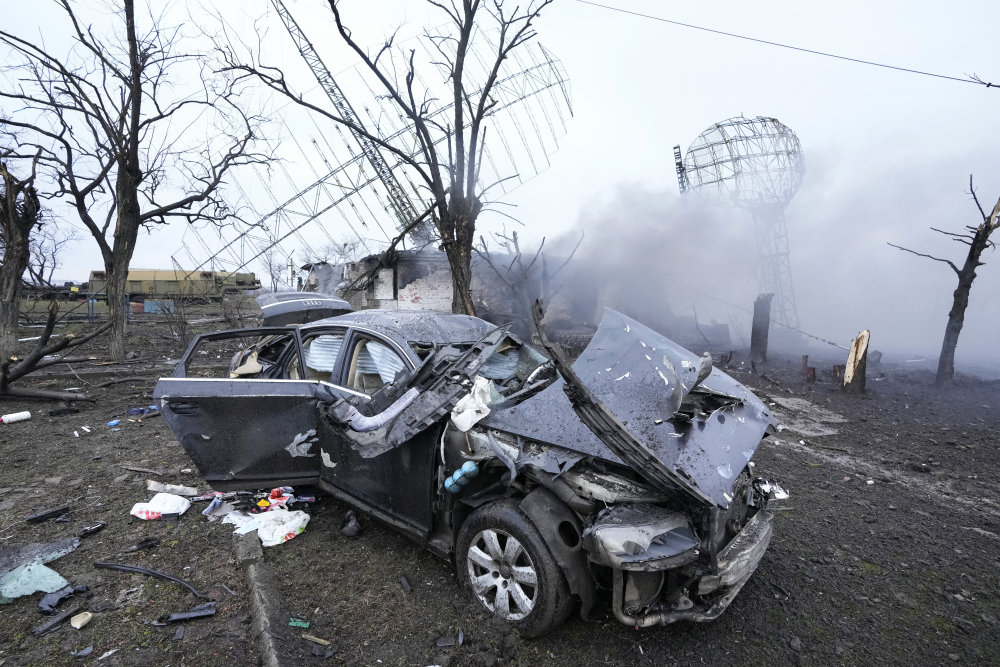
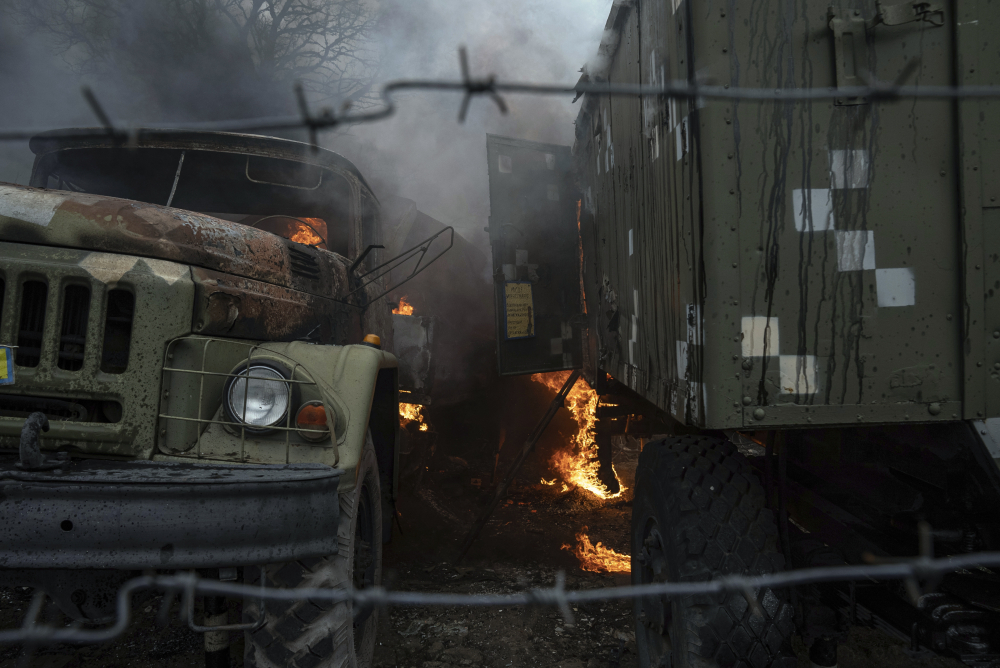
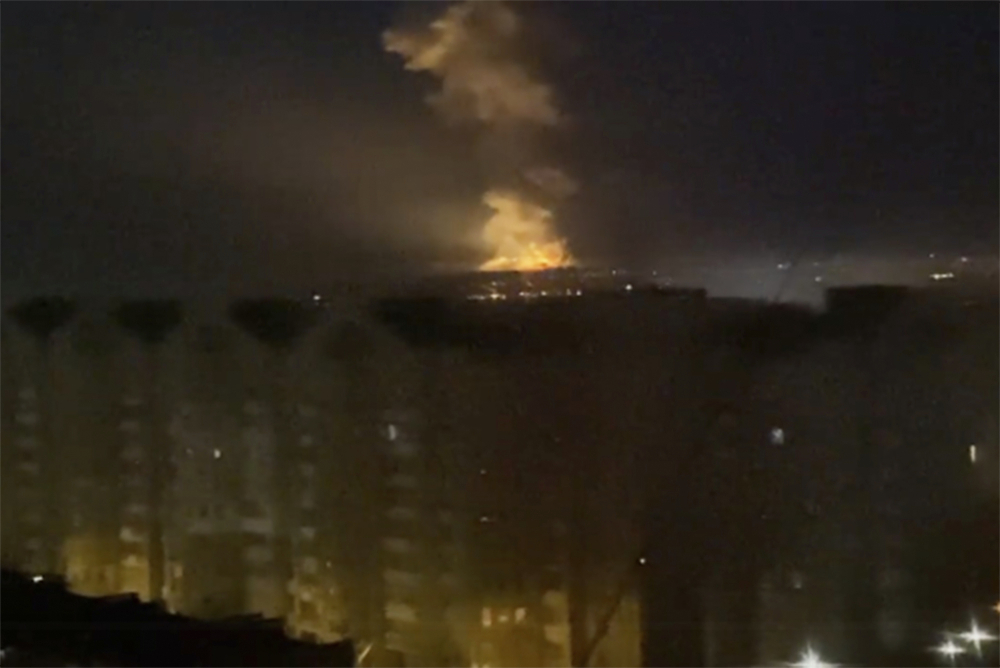
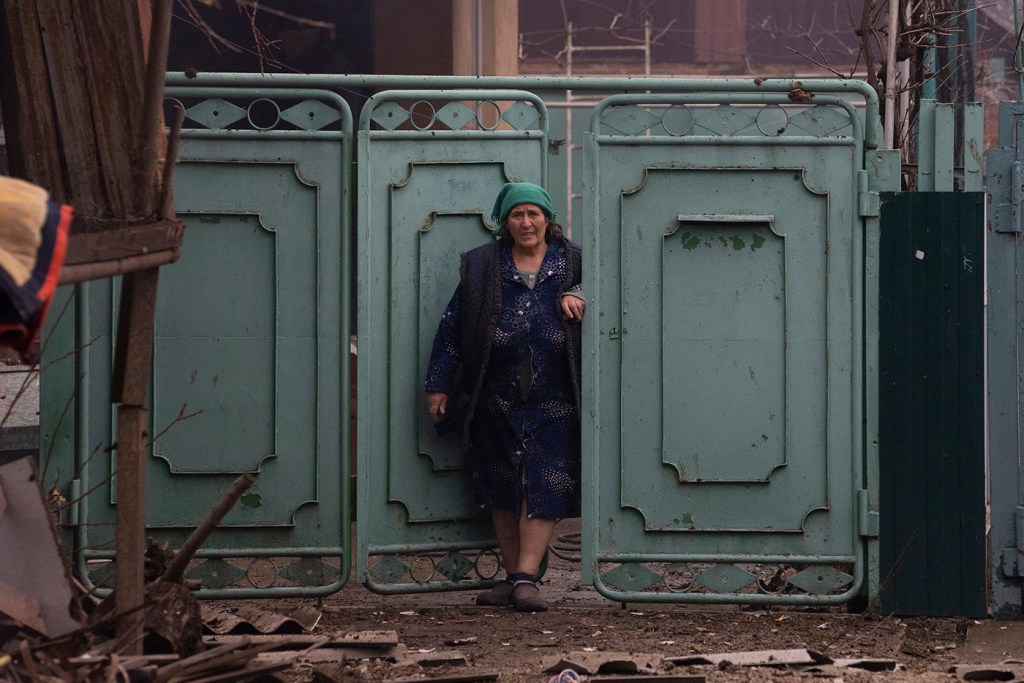
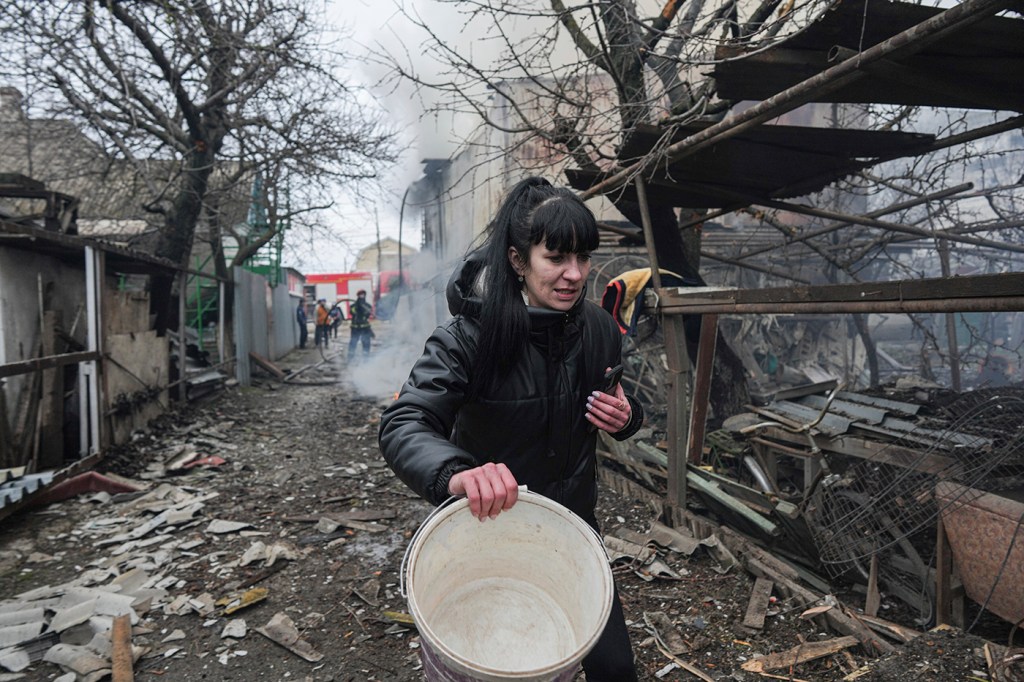
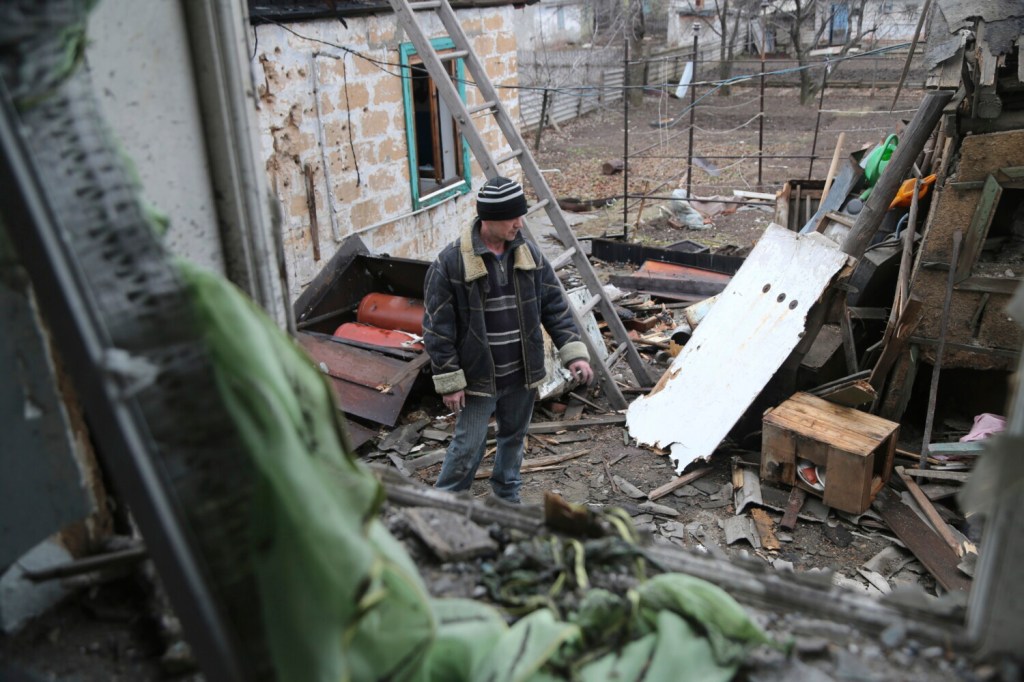
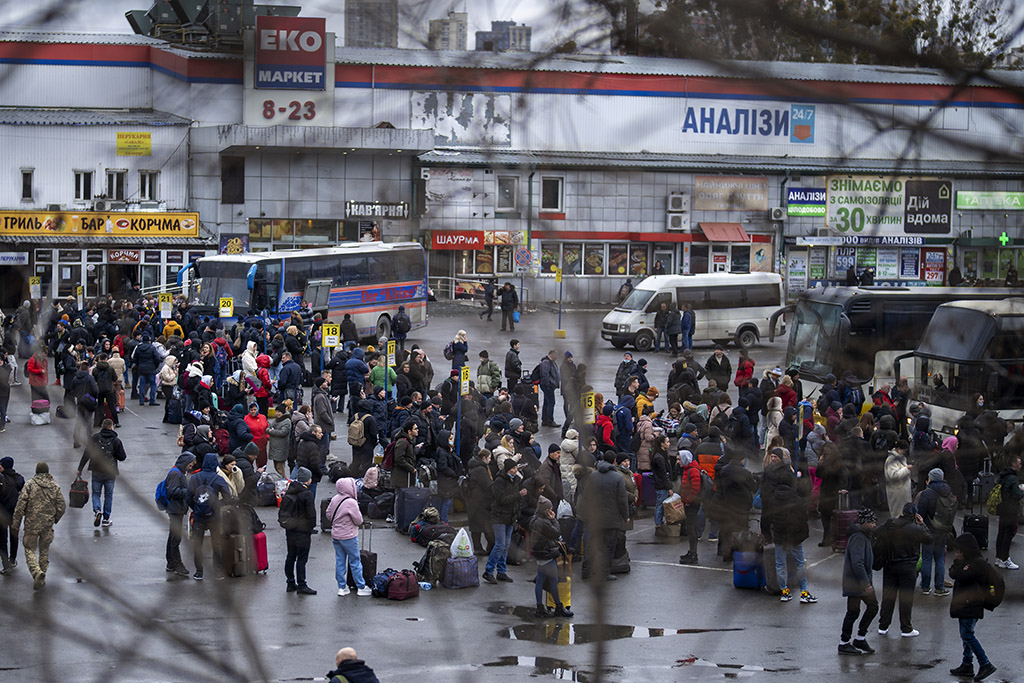
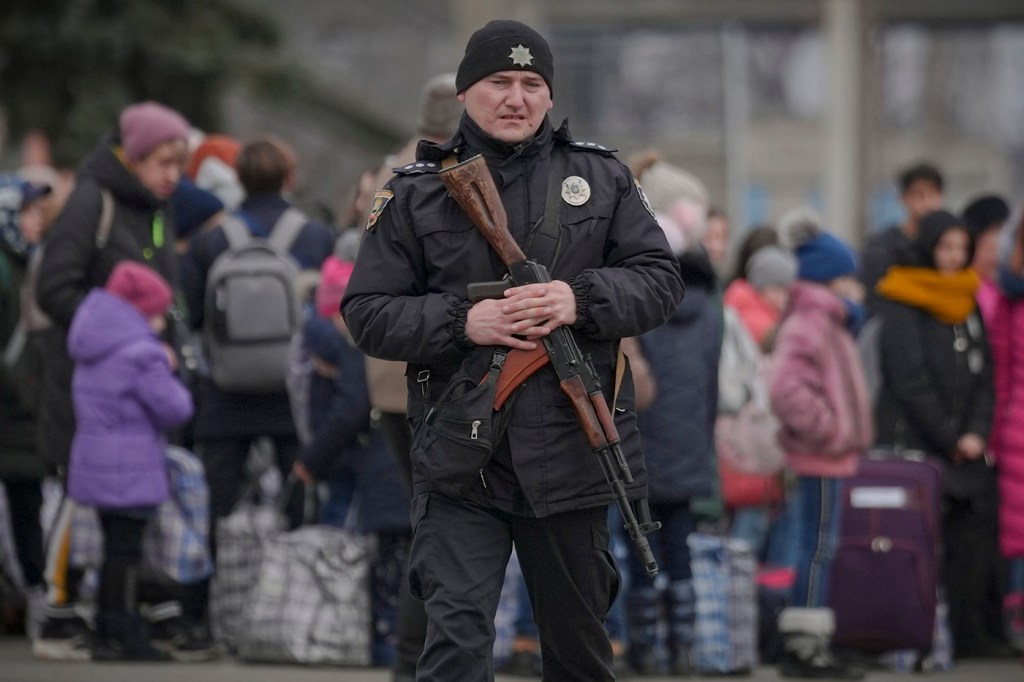
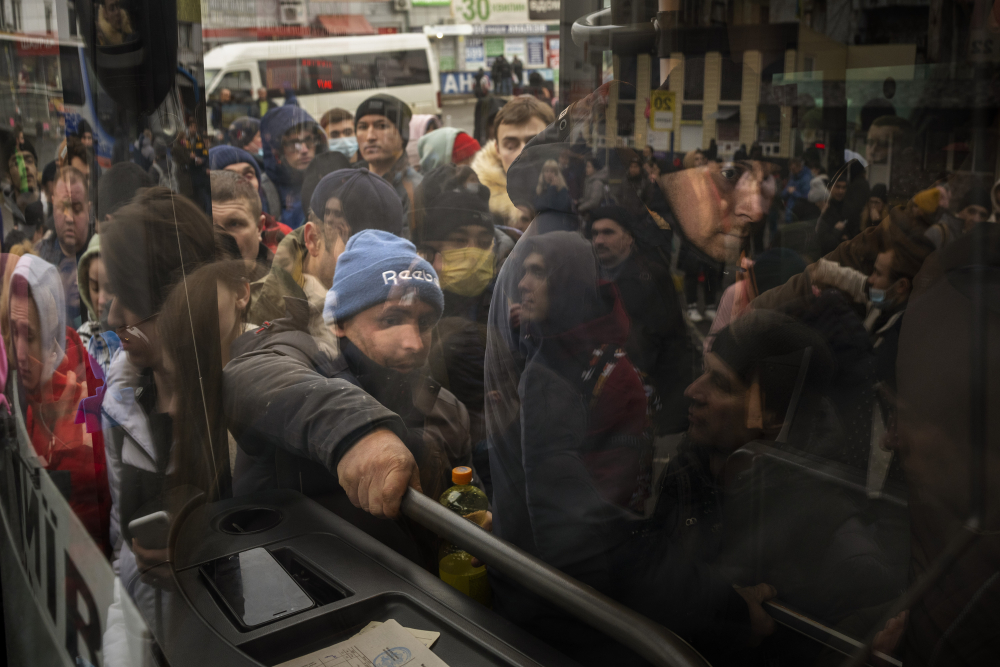
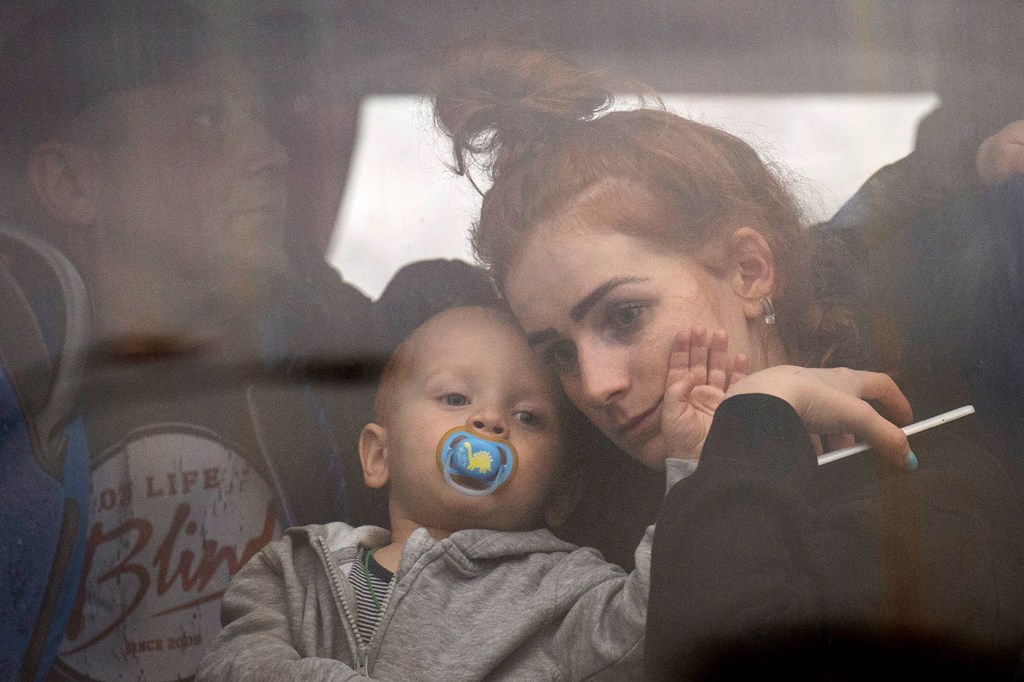
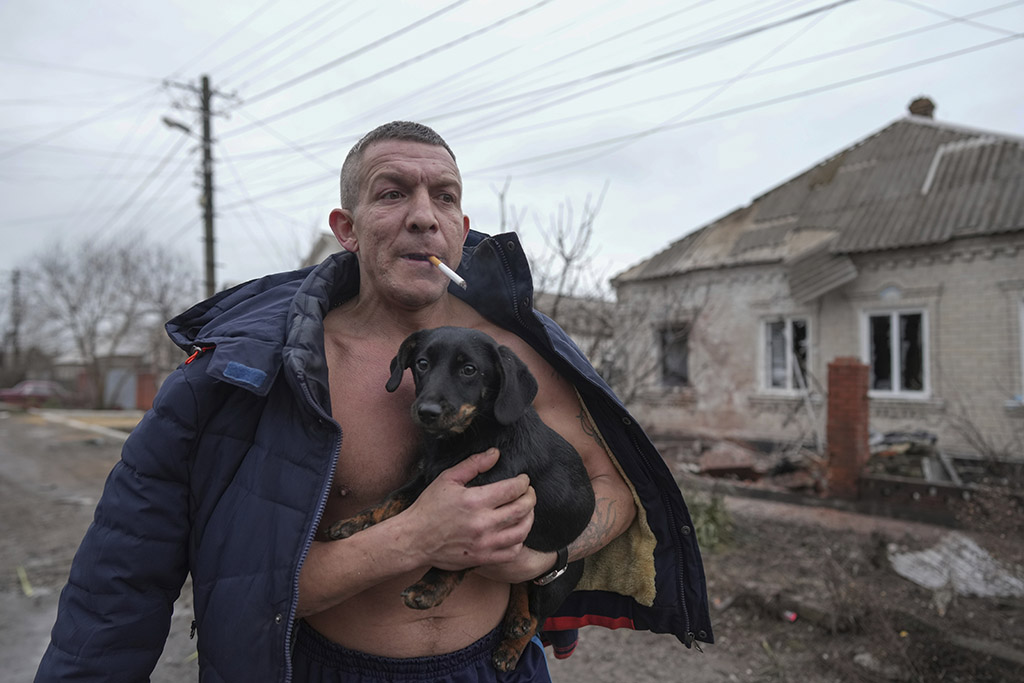
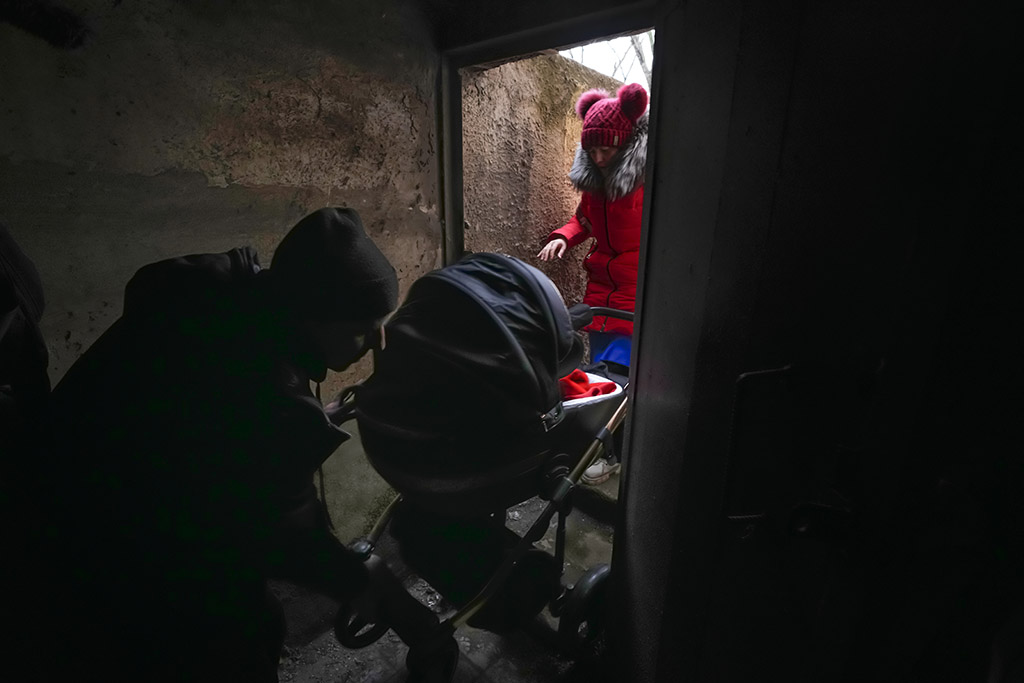
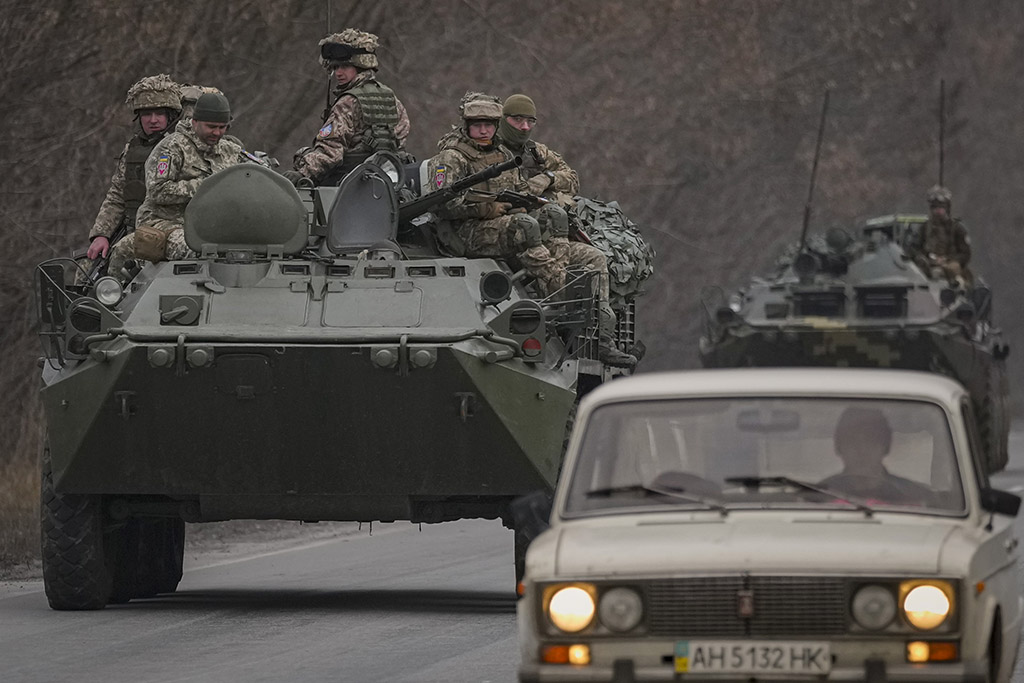
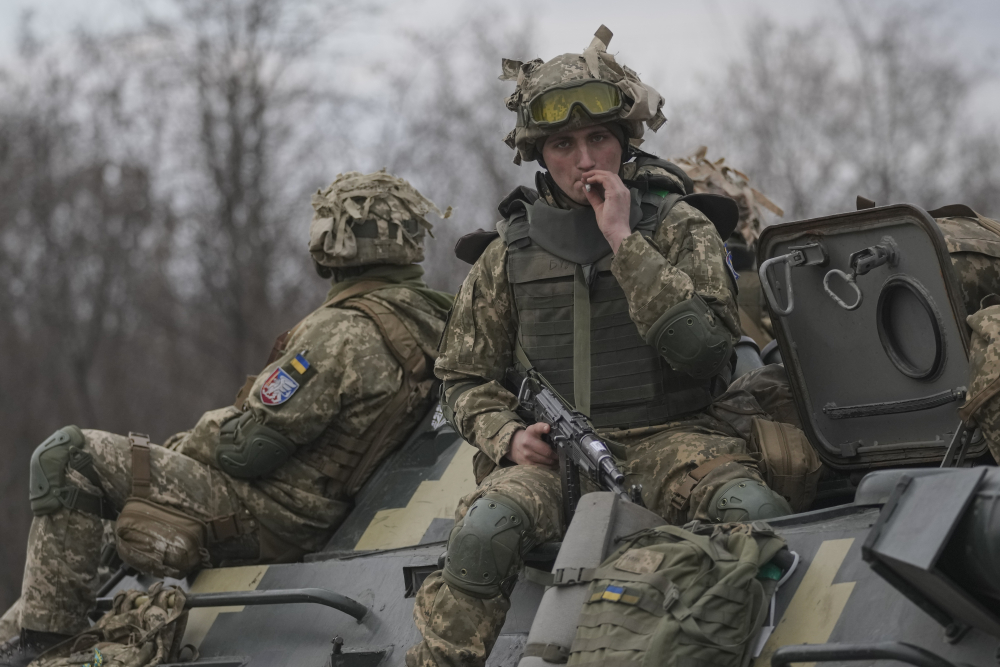
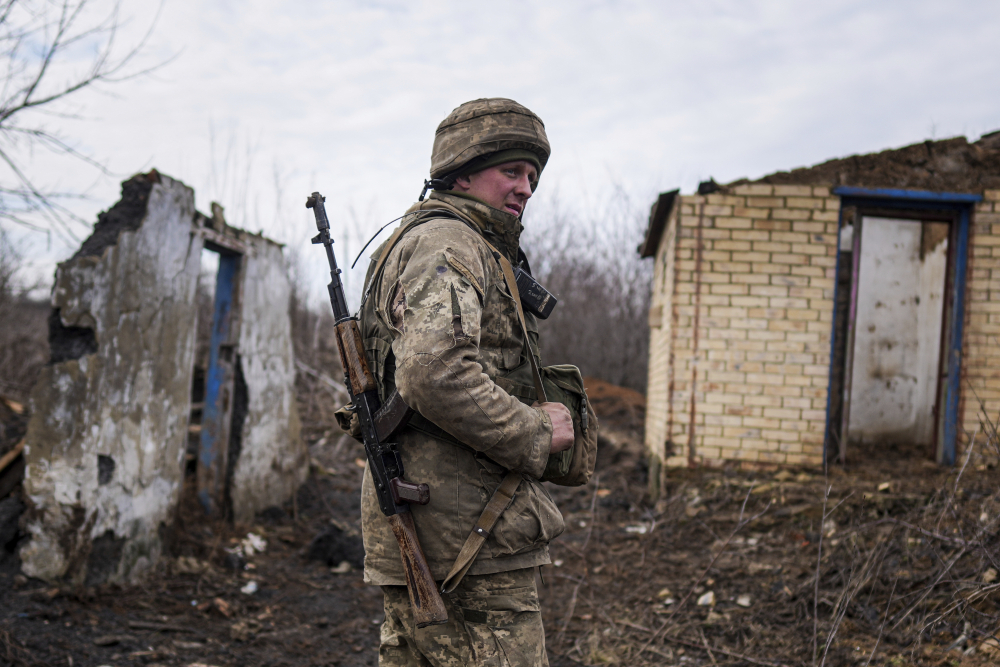
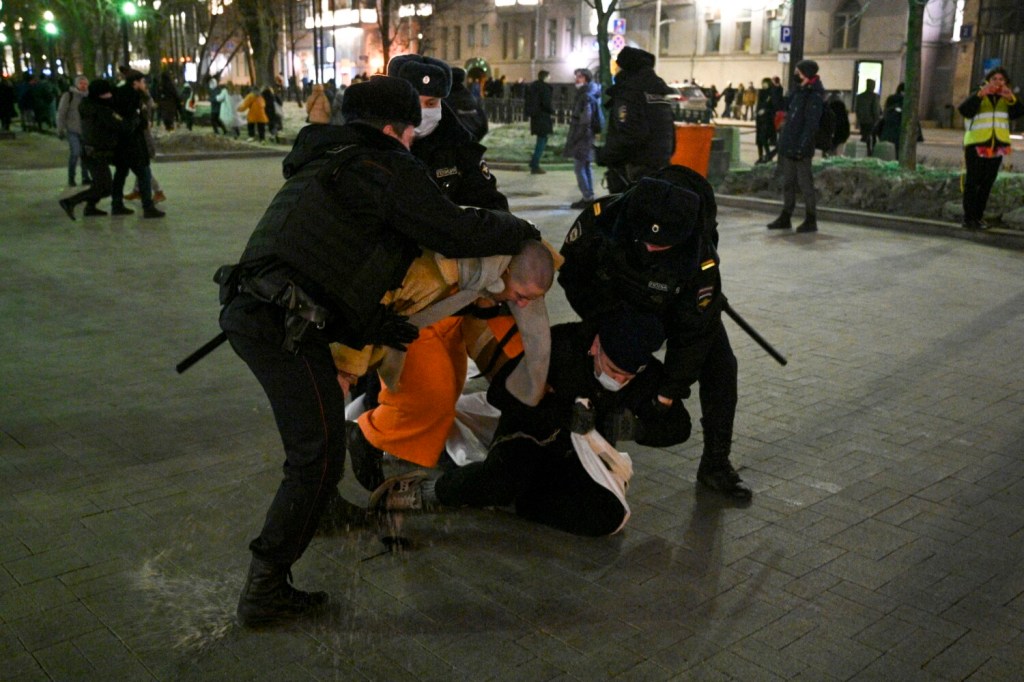
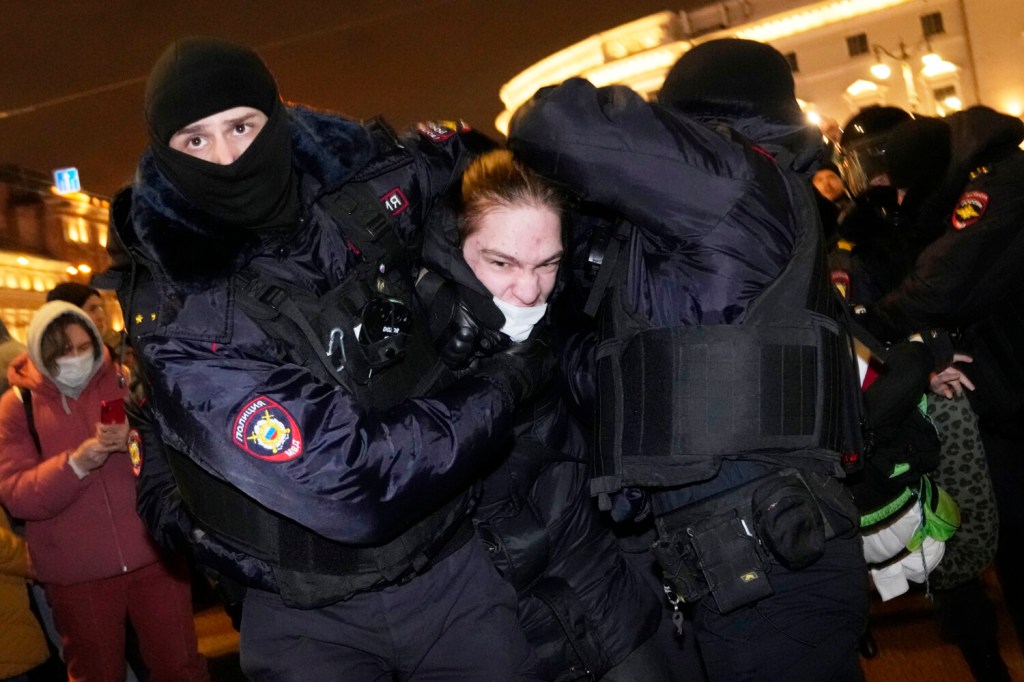
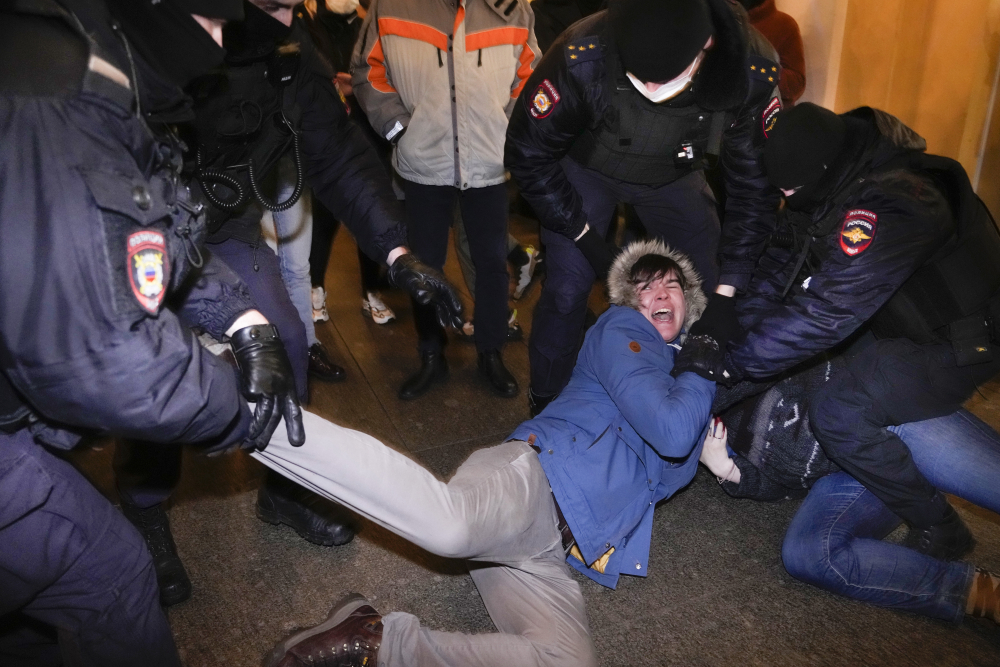
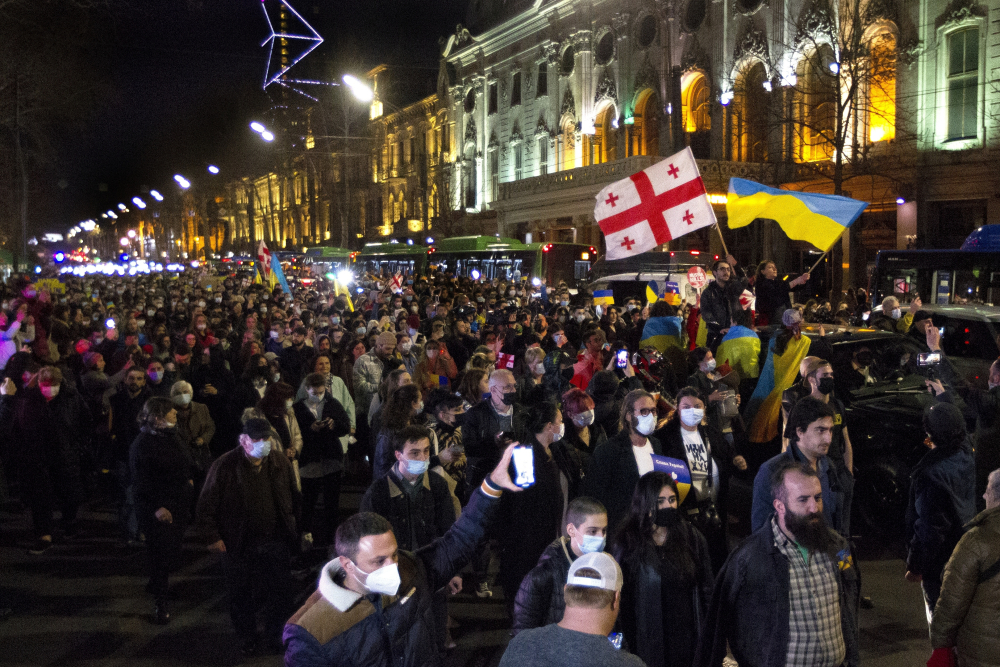
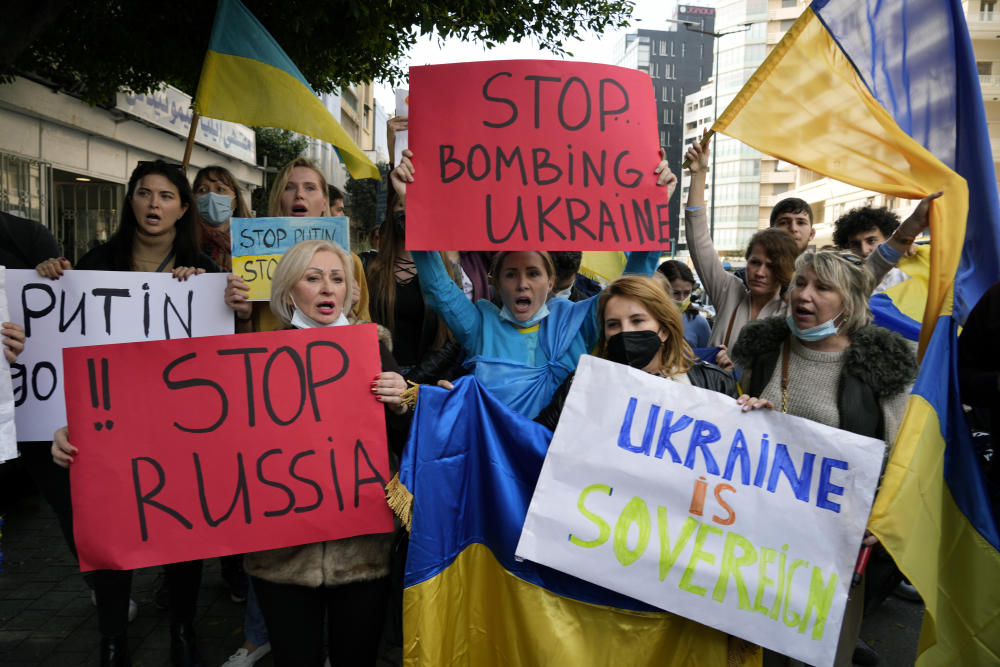
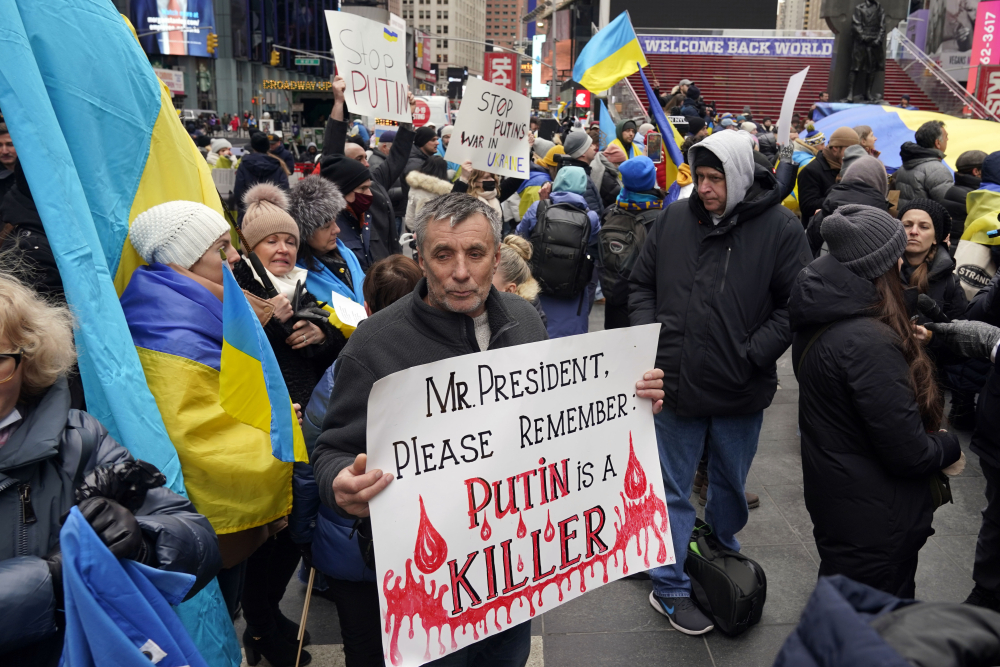

Success. Please wait for the page to reload. If the page does not reload within 5 seconds, please refresh the page.
Enter your email and password to access comments.
Hi, to comment on stories you must . This profile is in addition to your subscription and website login.
Already have a commenting profile? .
Invalid username/password.
Please check your email to confirm and complete your registration.
Only subscribers are eligible to post comments. Please subscribe or login first for digital access. Here’s why.
Use the form below to reset your password. When you've submitted your account email, we will send an email with a reset code.